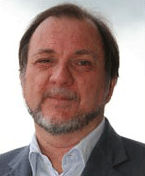

Interview with Mr Richard Ward

CEO
PetroquimicaSuape, Petrobras

Mr Ward, a warm welcome to Face2Face. Shall we begin the conversation with a few lines from you on the niche that Petrobras enjoys in Brazilian Petrochem industry?
Thanks! Petrobras has been fundamental in structuring the Brazilian chemical and petrochemical industry for more than 40 years, through strategic investments in feedstock capacity, as well as participation in 2nd generation plants.
PetroquímicaSuape is part of the portfolio of new investments in the petrochemical industry carried out by the chemical branch of the Petrobras group, Petroquisa. The mission of our Company is to implement a strong national polyester chain, and so improve the competitiveness of the Brazilian Textile Industry.
That’s great. So, how big is Brazilian Petrochem industry and what significance it holds in economic growth of your country?
The Brazilian chemical industry accumulated in 2008 a total net turnover of USD 122 billion, 10.6 % more than 2007, what means a contribution of 3.1 % to the total Brazilian GDP, in 2008.
Brazil is nowadays self sufficient in oil, and the recent discoveries of considerable new reserves have lead the government to promote new investments in the petrochemical industry. To ensure the full integration and availability of feed along the next 5 years, Petrobras will invest more than USD 40 billion in 4 new refineries as well as two petrochemical complexes.
Well, it’s for sure a dynamic project! Will you also throw some light on Olefin & textile intermediates market’s latest movements?
About the polyester chain which is the segment of PetroquímicaSuape, brazilian production has been characterized by small and also inefficient plants for DMT, PTA, PET and Yarns most of them built in the 70`s. Over the last years these old plants have been closed down or based their production on import of feedstock.
So, what is your company’s stake in Brazilian olefin & textile intermediate market in context of demand supply?
Our controlling group - Petrobras - has relevant shares of the two main brazilian petrochemical companies, Quattor (40%) and Braskem (30%). These two companies run 27 petrochemical plants, producing basic petrochemicals and plastic resins. About olefins, both have together a production of 5 million tons (ethylene and propylene).
In the textile intermediate market, as we still are in the construction phase, we do not have any stake in the market at this moment. Nevertheless, with the start-up of the integrated facility of PetroquímicaSuape in November 2010, we expect to be able to supply from our facility the majority of the local demand as well as supplying part of the demand of neighboring countries.
That's a lion's share! In context of exports from Latin American countries, as you too know, they are in trouble being mainly focused on recession hit regions like North America. How about Petrobras?
Despite Brazil is the world’s 6th largest textile manufacturer, it exports around 6% of its production only. It means we are focusing mainly on the internal market, which has a forecast of growth, instead of a recession scenario.
Encouraging! I must say. So, please tell us how is Petrobras prepared to address the immediate spurt in demand if situation arises once this sad episode ends?
Several investments in the global polyester chain have been delayed due to the crisis, but we believe that this is the right moment to invest. We expect that, when our plant comes online in November 2010, we will be ready to capture the upturn of the market.
Here with, while continuing talk about your strategic plans, about which its been also heard that some expansions in PTA, PET and resins units have been lined up, can you provide us more details on it?
In addition to the current capacity under construction by PetroquímicaSuape, Petrobras has plans to install a second PTA and PET plant, in connection with the 700 kton/year p-xylene facility, which is in project to be built Rio de Janeiro.
Fibre2fashion extends its best wishes for these projects Mr Ward. And now, ending the talk, with thanks for valued information, let me also ask you how Petrobras identifies itself on corporate social responsibility and environment protection front; this is also one of the major concerns of industry today?
Social Responsibility is one of the pillars of the Company's performance, alongside integrated growth and profitability. In the 2020 Strategic plan and in its attributes of Vision, specific management challenges have been traced in Social Responsibility.
In its Social Responsibility Policy, the Company started collecting specific integrated management, sustainable development, human rights, decent work, sustainable social investment, and workforce commitment guidelines.
#######
DISCLAIMER: All views and opinions expressed in this column are solely of the interviewee, and they do not reflect in any way the opinion of Fibre2Fashion.com.